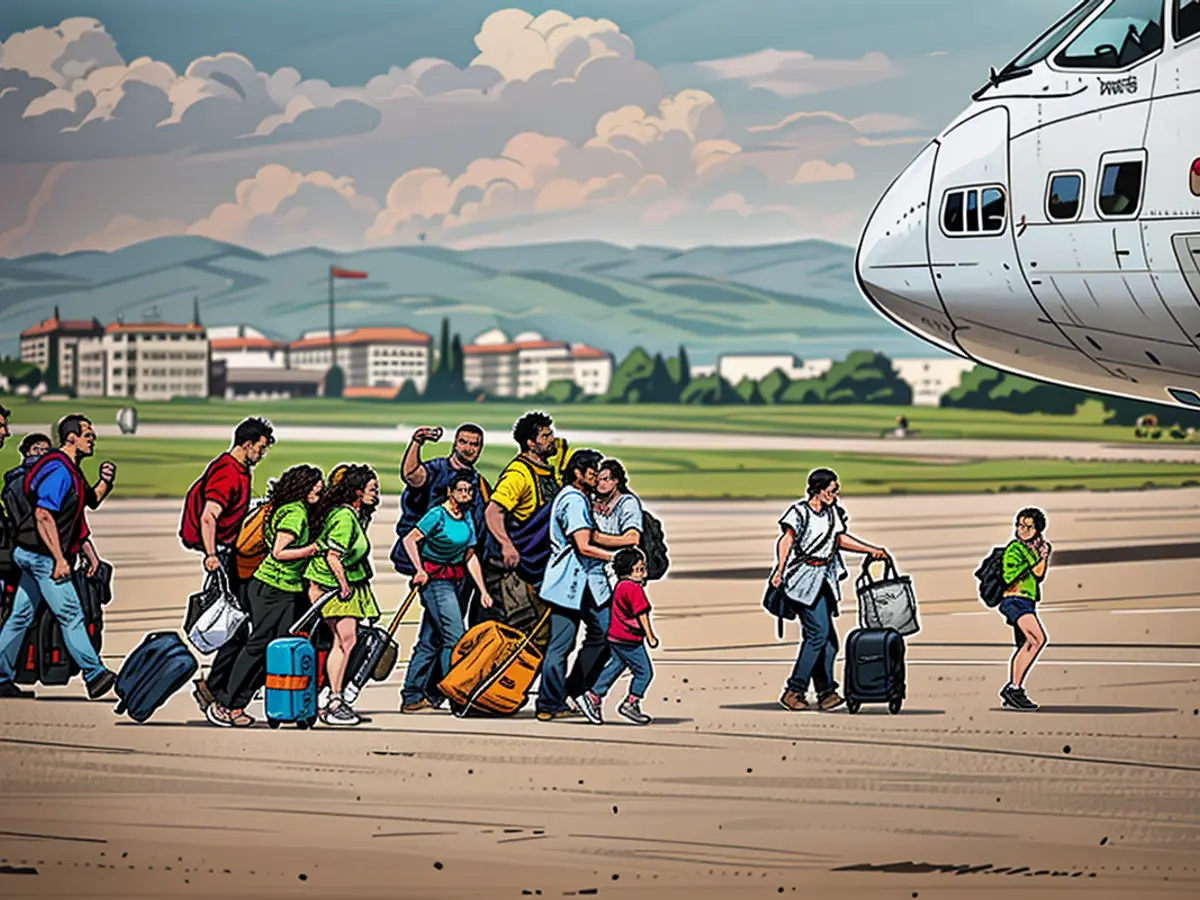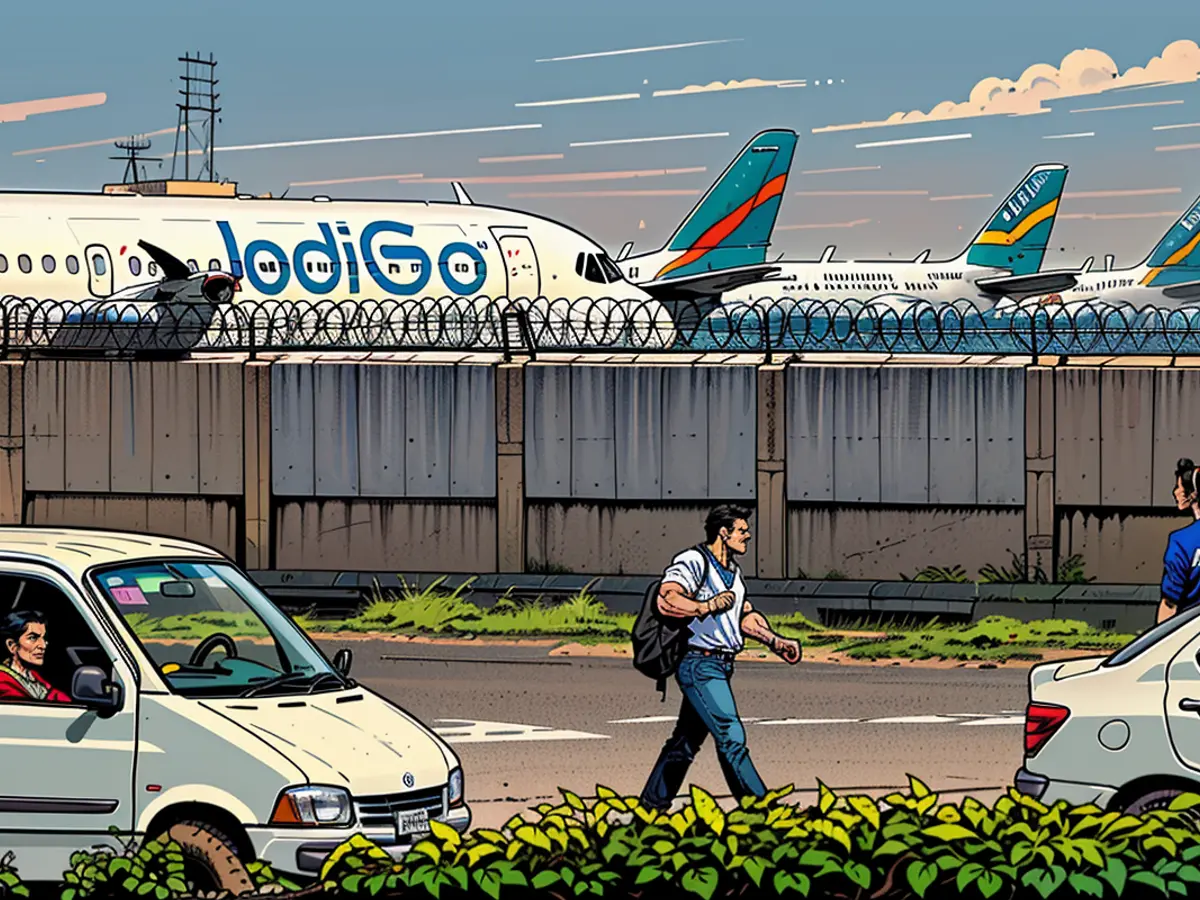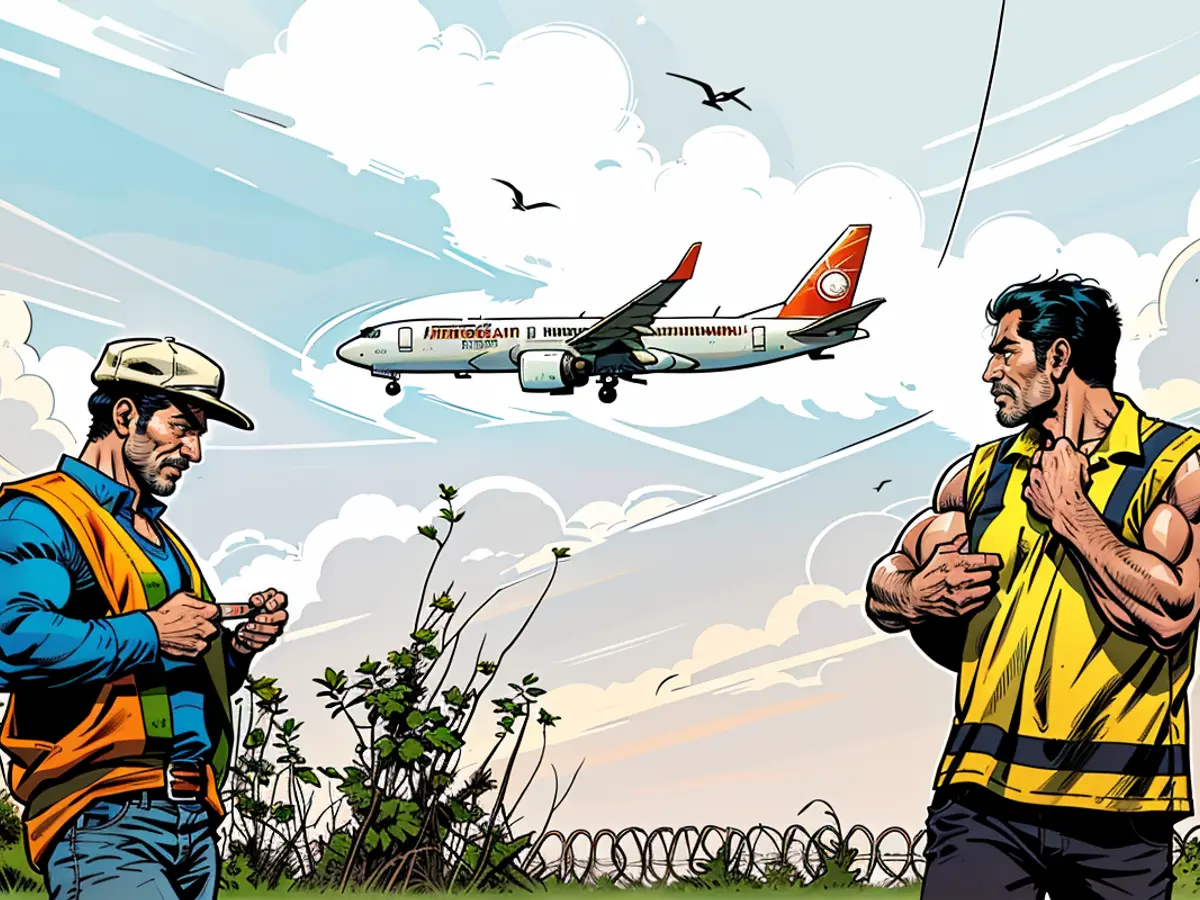fake bomb warnings cause chaos in India's travel sector, just before the Diwali celebrations
The outbreak of hoax warnings has plagued both international and domestic flights, resulting in disarray during lengthy voyages, such as journeys to New York. Despite a single arrest last week, with officials promising severe consequences for offenders, possibly including jail time, the barrage of warnings persists, often disseminated via emails and social media posts.
A single airline, budget carrier IndiGo Airlines, reported nearly 30 bomb threats within four days starting from Sunday, as per the airline's statements. Other Indian airlines, including Akasa Airlines, SpiceJet, and Alliance Air, have also been affected.
The mostnotable hoaxes targeted Air India last week; one flight to Chicago was forced to make an emergency landing in Canada's northernmost city in the Arctic, while another flight bound for Singapore required escort by Singaporean fighter jets, with bomb disposal units stationed at the airport.
Since the wave of hoaxes began around mid-October, "we have[had] 150 to 160" threats, revealed aviation expert and former Air India crew member Sanjay Lazar.
Bomb threat hoaxes are not uncommon in India – several airports reported similar threats in April and June this year. However, the frequency and level of disruption over the past two weeks have been unprecedented, leaving investigators in a frenzy to identify the culprits.
Last Tuesday, police in Mumbai reportedly arrested a minor suspected of posting threats against IndiGo Airlines on X, formerly Twitter. Police are also interrogating a second minor, with a spokesperson mentioning potential involvement.
Yet, no further arrests have been made, and the threats have continued despite enhanced security measures, legal threats, appeasement of airlines, and reassurance to anxious passengers.
"Even though there are hoax threats, we can’t treat the situation lightly," said Civil Aviation Minister Kinjarapu Ram Mohan Naidu in a news conference on Monday. "The safety and security of people and hassle-free travel ... remain our top priorities."
With Diwali, the festival of lights – a time that sparks a travel surge each year as millions of Indians travel domestically and expats return home – just over a week away, specialists worry that the ongoing hoaxes may disrupt travel plans.
Financial setbacks
Each bomb threat triggers a chain reaction of troubles, incurring significant time and financial losses for both airlines and passengers, according to Lazar.
This is due in part to stringent procedures under outdated laws, he explained. According to a 1982 law, last amended in 2010, "every threat must be taken into consideration," Lazar said – despite the law not mentioning modern factors such as social media that complicate matters.
There's also the "time-consuming" process of paperwork and coordination with various committees, Lazar said.
Authorities follow these steps meticulously for each threat, according to aviation minister Naidu. "Whenever there is a bomb threat case, no matter if it's through a call, social media, or other means, we have a strict protocol we adhere to," he added.
However, the threats and their consequences have caused severe headaches for airlines. Not only do they need to reschedule or divert flights, but they must also manage the multi-hour process of sealing the plane, inspecting it from top to bottom, scrutinizing every piece of luggage, and allowing a "cooling period" for the plane afterwards, according to Lazar.

"It's not a simple task ... there's a considerable cost and time involved."
While airlines have not disclosed the exact financial impact, Lazar estimated each affected airline has lost hundreds of thousands of dollars – with the overall cost likely in the millions.
The expenses accumulate through landing fees, fuel disposal, bomb disposal squad fees, and providing services for passengers such as accommodation, alternate flights, and refunds.
These disruptions would cause chaos at any time – but particularly in the run-up to Diwali, beginning October 31. Also known as Deepvali, the festival of lights is celebrated by over a billion Hindus, Sikhs, Jains, and Buddhists worldwide, during which families gather to feast, exchange gifts, and offer religious offerings.
This also makes it the second-largest travel period of the year in India, after the Christmas to New Year period, according to Lazar.
By September, Diwali flight bookings had seen an 85% increase compared to the previous year – surpassing pre-pandemic levels, according to World on Holiday, an Indian organization that analyzes travel and hospitality data.
"Passengers will be scared, but those who need to travel will travel ... so what's going to happen if this chaos unfolds during Diwali?" Lazar pondered.
He added that while he is concerned about the recent wave of bomb threats, he is "even more concerned about what may happen during Diwali and Christmas."
The aviation ministry is contemplating legislative adjustments as a preventive measure. If enacted, these adjustments would add hoax creators to a banned fly list and make hoaxes punishable as a "cognizable offense," enabling authorities to apprehend suspects without needing a warrant, as stated by Naidu.
CNN attempted to obtain comments from the Ministry of Civil Aviation and various other government bodies.
Lazar expresses his belief that the proposed measures are insufficient. He considers it ridiculous to dismiss hoaxes as the handiwork of a jester, given the magnitude of the disruption and the lurking danger of a genuine threat.
According to him, the country's technological capabilities should be utilized to trace online users. This involves collaborating with international agencies and social media platforms.
Until such measures are implemented, "I don't believe we've witnessed the last of this," he said.
In light of the ongoing hoax bomb threats affecting Indian airlines, the frequency and disruption have been unprecedented, leaving investigators in a frenzy, especially as Diwali, a major travel period in India, approaches.
Despite these threats plaguing the world, with instances reported in April and June this year, India's civil aviation minister has emphasized the importance of addressing hoaxes seriously, recognizing their potential financial and safety implications, not just for the country but also globally.








